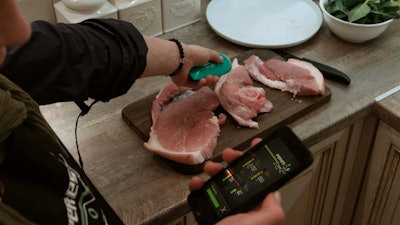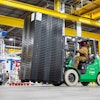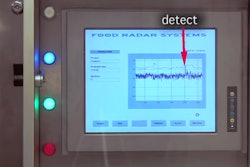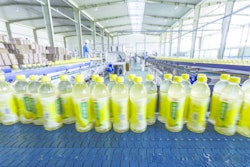
Dubbed as “the world’s first electronic nose,” PERES from ARS LAB analyzes food products and determines if they are fresh and safe for human consumption. ARS LAB has launched an Indiegogo campaign to secure funding for its newest product, the PERES portable device. Compatible with beef, pork, poultry and fish, PERES analyzes airborne data and provides instantaneous feedback to users relating to the food’s health.
There are over 100 different volatile organic compounds, or VOCs, detectable in decomposing fish, poultry, beef and pork. PERES utilizes four different sensors to detect VOC compounds as well as ammonia levels, then adjusts the data according to temperature and humidity levels in order to provide accurate feedback relating to the health of the product.
The device reads and analyzes data before transmitting it via Bluetooth technology to the user’s smartphone or tablet, where it can be viewed on the PERES app. A number graphs and charts provide a visually appealing representation of the data accrued.
“For the longest time, we’ve put our food through the smell test,” said Augustus Alesiunas, CEO of ARS LAB. “But poisonous compounds produced during meat spoilage can be odorless, so they’d still pass this test. PERES fixes this problem and allows consumers to feel completely comfortable about their meat’s condition before buying or serving and ingesting it.”
According to the World Health Organization, there are over 200 diseases that can be spread simply by ingesting food. In 2013 alone, one-third of the population of industrialized countries were afflicted by a foodborne illness. By introducing PERES to the general public at an affordable cost, ARS LAB aims to lower those figures and, in turn, create a healthier society.
“In addition to airborne exposure, food spoilage can also occur because of contact from cookware or other items,” said Alesiunas. “With PERES, nothing has to touch your food. Users simply point the device at the item of food in question and allow the sensors to analyze the air sample surrounding the piece of meat.”
There is also a social aspect to PERES. Users can share their results and experiences through Facebook and Twitter, allowing friends and followers to see the abilities and accuracy of PERES.
To find out more information about PERES or to place a pre-order, visit the Indiegogo campaign page at http://bit.ly/PERESIndie. Also, like PERES on Facebook and follow PERES on Twitter @get_peres to stay up to date on all ARS LAB announcements and news.


















